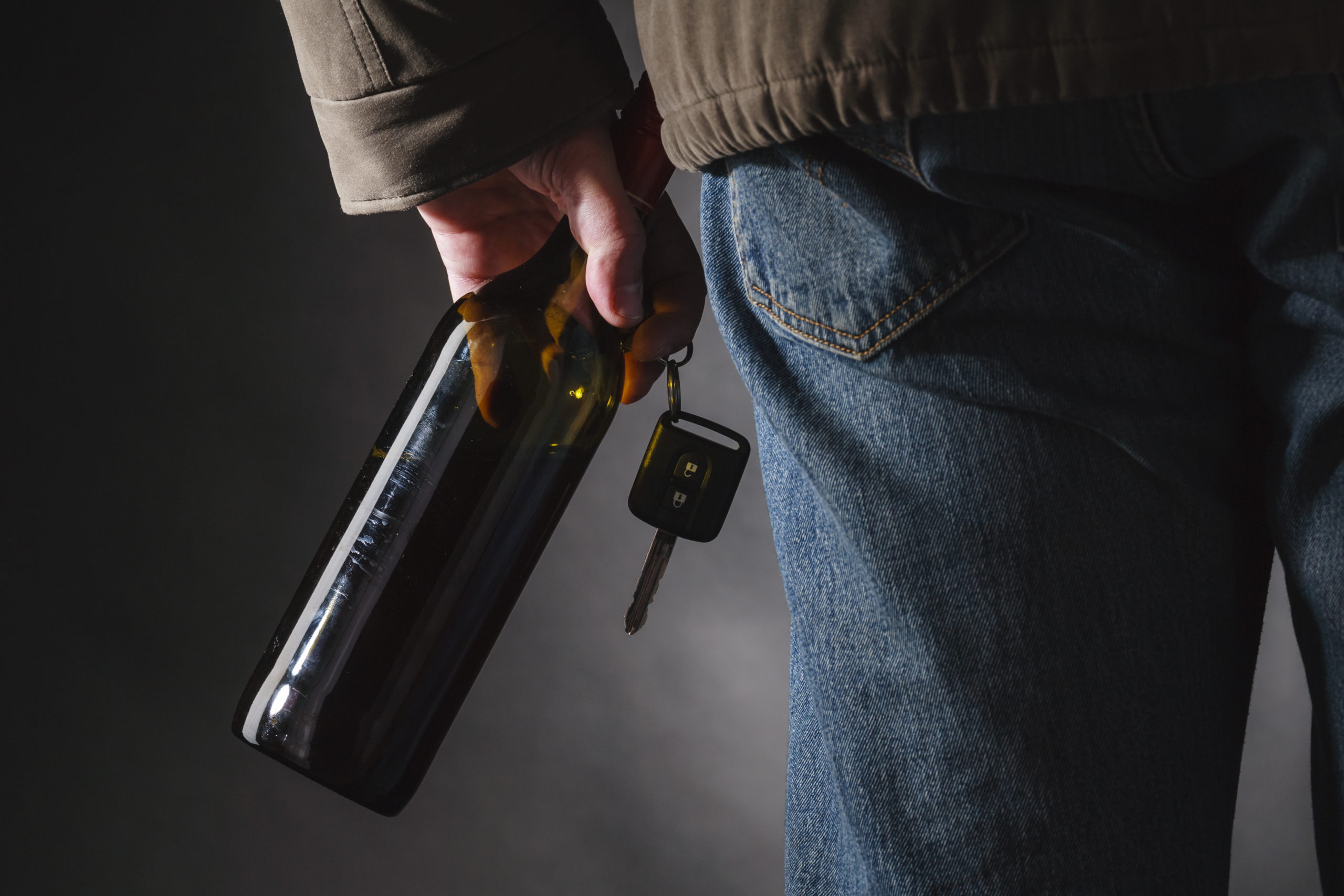Approximately every 48 minutes, one fatality occurs in the U.S. involving drivers with a blood alcohol content (BAC) of .08 or above. Every state has been impacted by the painful repercussions of drunk driving. In New Jersey, 28% of all fatal crashes involve alcohol consumption.
Alcohol consumption paired with the size and volume of trucks can be an especially lethal combination. Between the length of trucks, their substantial weight rolling down the road, and the potential for hazardous material in trailers, truckers face many unique challenges while they work to drive safely on highways. Truckers also often have to drive long distances without proper rest, leading to fatigue and a lack of concentration.
Although truck crashes do not occur as frequently as other accidents involving different types of vehicles, when truck accidents do happen, the effects and damages are often severe. Such a crash can cause physical, mental, and emotional distress for everyone involved.
Common Scenarios in Truck Accidents Involving Drunk Driving
The majority of fatal crashes (83 percent) and nonfatal crashes (88 percent) involving large trucks occurs on weekdays. However, alcohol-related accidents occur more frequently on the weekend. According to New Jersey’s Department of Public Law & Safety, 28% of drivers involved in fatal crashes on weekends were alcohol-impaired, compared with 15% during the weekdays. Additionally, alcohol intoxication among drivers involved in fatal crashes in New Jersey was almost four times higher at night than during the day.
Nationwide, fatal crashes involving trucks frequently occur in rural areas or on interstate highways. Approximately 57% of all fatal crashes involving large trucks occurred in rural areas, 26% occurred on Interstate highways, and 13% fell into both categories by occurring on rural Interstate highways.
Truck Drivers Held to a Higher Standard
Drunk driving laws make it illegal nationwide to drive with a BAC at or above 0.08%. BAC refers to the amount of alcohol in the bloodstream at the time of testing. Although the New Jersey law refers to a 0.08 percent BAC, a driver can be convicted of driving while under the influence of alcohol even when the BAC is below 0.08 percent. That’s because even small amounts of alcohol dulls the senses, decreases reaction time, and interferes with sound judgment.
Although 0.08% is the nationwide and New Jersey threshold, truck drivers who hold a commercial drivers license (CDL) are held to a much higher standard as a professional driver.
A blood alcohol content (BAC) level of .04% constitutes grounds for a DWI charge for CDL licensed drivers if suspected of drunk driving while operating a commercial vehicle.
However, if a person with a CDL is driving a passenger vehicle when stopped under the suspicion of a DWI, the 0.08% BAC level applies. Also note that driving a commercial vehicle implies consent to a sobriety check, according to the Federal Motor Carrier Safety Administration (FMCSA): “Any person who holds a CDL is considered to have consented to such testing as is required by any State or jurisdiction…”

Factors to Consider
In analyzing truck crashes involving alcohol, courts look to all the relevant circumstances in order to determine fault and liability. A person injured by an intoxicated truck driver should get representation from an attorney right away to help determine the best possible outcomes. Not all cases are straightforward and some scenarios involve extenuating circumstances.
- Multiple at-fault parties – Sometimes, more than one party is at fault in drunk driving accidents. Although this case is about a person driving a car, the same would apply if the person had been driving a truck while drunk. In Kelly v. Gwinnell, the court held both the intoxicated driver and the people who served the driver alcohol in their home before he got into the car were responsible for the accident. While at Zak’s home, Gwinnell consumed several alcoholic beverages. After dinner and drinks, Zak accompanied Gwinnell outside to his car, chatted with him, and watched as Gwinnell then drove off to go home. Shortly after, Gwinell got into a head-on collision with another driver, Marie Kelly, who was seriously injured as a result. After the accident, Gwinnell was subjected to a blood test, which showed a BAC of .286. Kelly’s expert concluded Gwinnell had consumed close to thirteen drinks. Kelly’s attorney recognized that Gwinelle must have shown unmistakable signs of intoxication before leaving Zak’s home to drive, and thus, they too were responsible in part for the accident. Kelly sued both Gwinnell and Zak. She was successful in her suit as the court found that a reasonable person in Zak’s position could foresee that the continued provision of alcohol was making it more and more likely that Gwinell would not be able to operate his car safely.
- Multiple charges – Additionally, a drunk driver’s actions may result in more than one applicable charge, regardless of the vehicle type. It’s important for anyone recently injured in a drunk driving accident to consult legal help right away in order to determine the appropriate charges. For example, in State v. Kotter, an intoxicated driver struck and killed a child and injured two others. The driver was charged with aggravated manslaughter, aggravated assault, assault by auto, and drunk driving. The intoxicated driver asked for a psychologist’s testimony in the courtroom to show he had diminished capacity when he injured the other drivers and passengers. The court, however, did not grant his request, stating that the driver did not have a defense of diminished capacity in the face of reckless misconduct. All of the charges stayed against the intoxicated driver and his sentence was upheld by the court. The court found proof clearly established the defendant caused the accident and the injuries for which she was convicted.
- Passengers in drunk driver’s vehicles – There may be cases where a passenger is seriously injured after getting into a vehicle with an intoxicated driver. For example, in Lee v. Kiku Restaurant, vehicle passengers and driver went out for a celebratory meal after a work week. All three consumed alcohol at a restaurant to the point of visible intoxication. After several drinks, the driver assured the passengers he was fine to drive and got into his car. About five miles from the restaurant, the driver hit a truck from the rear and all three occupants suffered serious injuries. One of the passengers then filed suit against both the driver and the restaurant, alleging that the restaurant was partially responsible because it continued to serve the driver alcohol after he was clearly intoxicated. The court ordered the jury to apportion fault between the passenger, the driver, and the restaurant. Even though the passenger was partially at fault for his inability to recognize the risk of his behavior, he still had the ability to recover from both the restaurant and the driver.
Collecting Through Insurance
New Jersey has a “no fault” auto insurance system. This means your own insurance (your “personal injury protection” or “PIP” coverage) pays for your medical treatment and other out-of-pocket losses incurred by anyone covered under the policy, regardless of who is at fault for the accident.
New Jersey drivers are required to carry at least a “Basic Policy,” which includes:
- $5,000 in Property Damage Liability
- $15,000 in Personal Injury Protection
Under a Basic Policy, the policyholder is bound by a “limited right to sue.” This means you can only pursue legal action against an at-fault driver if the accident caused you to suffer any of the following serious injuries:
- loss of a body part
- significant disfigurement
- significant scarring
- a displaced fracture
- loss of a fetus
- permanent injury (meaning the affected body part has not healed to allow normal function, and is not expected to)
- death
If the impact of an accident has met this threshold, you can file a personal injury lawsuit against the at-fault truck driver. In order to be successful in a personal injury suit, you must prove the driver’s negligence or fault in the accident. If you successfully prove the truck driver (and/or his employer) was at fault for your injuries, you may be eligible for both economic and non-economic compensation. Economic compensation covers things such as medical expenses, past and future lost wages, property damage, and lost earning capacity. Non-economic compensation refers to abstract losses such as pain and suffering, emotional distress, and loss of enjoyment of life.

Case Study: $3.9 Million
What makes this case unique: Competing arguments on whether the victim had experienced “impending doom”; a big-shot attorney who was “too large” for the case.
Frequently Asked Questions
New Jersey applies a modified comparative negligence standard. This means each party is assigned a certain percentage of responsibility. As long as you are not more than 50% at fault in New Jersey, you are still able to recover damages though they will be reduced by the percentage of your fault.
In New Jersey, CDL holders who are convicted of a first-offense for drunk driving in New Jersey risk having their commercial license suspended for one year (three years for those driving a vehicle with hazardous material). However, it’s important to note that a second offense does mean a permanent revocation of the CDL.
Yes. The police on the scene of your accident likely asked the driver to take a breathalyzer test to record his or her BAC on the spot. If the driver was transported to the hospital, it is likely his or her blood was taken there to determine the driver’s BAC. This evidence of the truck driver’s intoxication can be used in your lawsuit. Remember, too, the FMCSA considers holding a CDL as “implied consent” to submit to testing for intoxication.
You may qualify for both compensatory and punitive damages. Compensatory damages is money awarded to you to compensate for your injuries, property damages, and any economic loss such as lost wages. Though rare, punitive damages are meant to both punish the intoxicated driver for reckless behavior and to warn other drivers that they should not engage in the same dangerous activity.
Who Should I Contact if I’ve Been Injured by a Drunk Truck Driver?
If you or someone you love has been injured in a truck accident where the driver was intoxicated, contact the attorneys at Rosenblum Law so that we can help determine if you are entitled to compensation. Email or call 888-815-3649 today for a free consultation about your case.










 888-815-3649
888-815-3649
